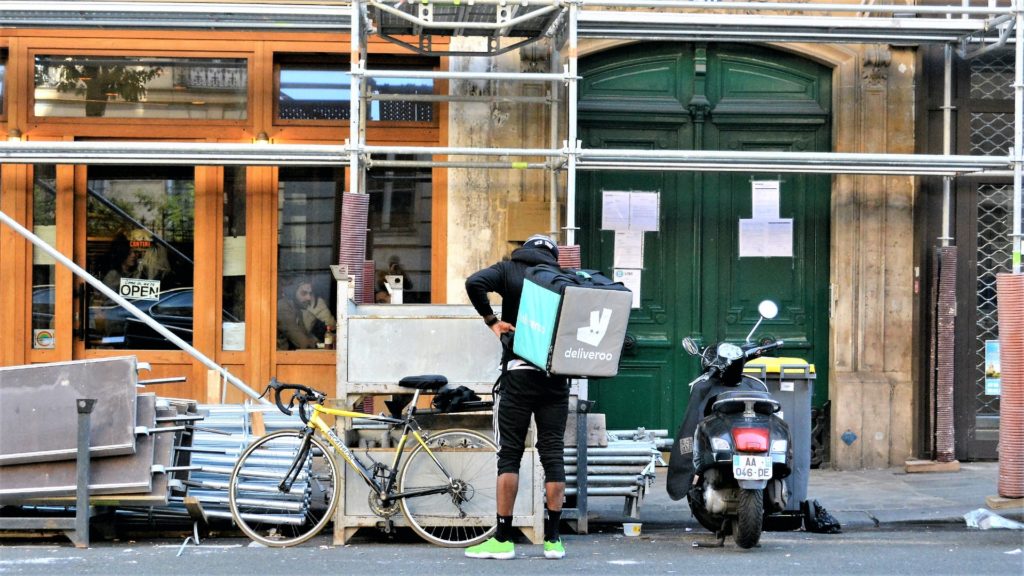After more than two years of protracted negotiations, EU Economy Ministers have agreed on a directive to provide millions of platform workers with better working conditions, the Belgian EU Presidency announced on Monday.
EU Employment and Social Affairs Ministers confirmed the provisional agreement reached on 8 February between the Council’s presidency and the European Parliament’s negotiators on the platform work directive. The move was aiming to improve working conditions and regulate the use of algorithms by digital labour platforms.
"This victory is about protecting the people who give us rides, bring us food and perform many other services for us every day. Many platforms hire them as bogus self-employed workers, depriving them of decent wages and labour rights. We won this battle hand in hand with trade unions," said Rapporteur and S&D Vice-President Elisabetta Gualmini, adding that this is a "historic deal" that will give platform workers dignity, protection and rights.
The directive targets the millions of people working for digital platforms such as Uber, Deliveroo or Bolt. The EU wants to tackle false self-employment in the sector and ensure that platform workers have proper status.
The agreement also provides for better management of algorithms used in the platform work sector.
"It will also preserve true self-employment, prevent unfair competition and introduce groundbreaking rules on algorithm management. This agreement will make sure that the machines cannot fire people or spy on them and that working conditions will have to be transparent, like for every business," Gualmini added. "It will make Europe the pioneer in global labour law."

Credit: Tomaskju/PxHere
Only the French and German governments were opposed to the directive, The Left group in the European Parliament underlined.
"Throughout the negotiations, the French President [Emmanual Macron] tried to torpedo the presumption of salaried status, to serve Uber rather than the workers," said Vice-President of the Committee on Employment and Social Affairs (EPML) and French MEP Leïla Chaibi.
"Macron – the self-proclaimed champion of a 'Europe that protects' – has shown here that in reality it only protects the interests of the lobbies," she said. "Thanks to our fight, we did not let Uber make the law in Europe. With this directive, millions of false self-employed people across Europe will be reclassified as employees."
Regulating algorithmic workplace management
The directive will make the use of algorithms in human resources management more transparent, ensuring that automated systems are monitored by qualified staff and that workers have the right to contest automated decisions. It will also help correctly determine the employment status of people working for platforms, enabling them to benefit from any labour rights they are entitled to.
"This is the first-ever piece of EU legislation to regulate algorithmic management in the workplace and to set EU minimum standards to improve working conditions for millions of platform workers across the EU," said Belgian Economy and Employment Minister Pierre-Yves Dermagne.
He added that the agreement reached on Monday builds on the efforts of previous Council presidencies "and reaffirms the social dimension of the European Union."
The agreed text strikes a balance between respecting national labour systems and ensuring minimum standards of protection for the more than 28 million people working in digital labour platforms across the EU.

© Carll Campbell/Unsplash
The main compromise elements revolve around a legal presumption which will help determine the correct employment status of persons working in digital platforms.
In practice, this means that Member States must now establish a legal presumption of employment in their legal systems, to be triggered when facts indicating control and direction are found. Those facts will be determined according to national law and collective agreements, while taking into account EU case law.
People working in digital platforms, their representatives or national authorities may invoke this legal presumption and claim they are misclassified. Importantly, it will be up to the digital platform to prove that there is no employment relationship.
Additionally, Member States will provide guidance to digital platforms and national authorities when the new measures are being put in place.
Regulating algorithmic management
The agreement also ensures that workers are duly informed about the use of automated monitoring and decision-making systems regarding their recruitment, their working conditions and their earnings, among other things.
For these automated decisions, human oversight and evaluation will also be guaranteed, including the right to have those decisions explained and reviewed.
On top of that, automated monitoring or decision-making systems are not allowed to be used for the processing of certain types of personal data (such as biometric data or their emotional or psychological state) of people performing platform work.
Now, the text of the agreement will be finalised in all the official languages and formally adopted by both institutions. Once these formal steps have been completed, Member States will have two years to incorporate the provisions of the directive into their national legislation.

